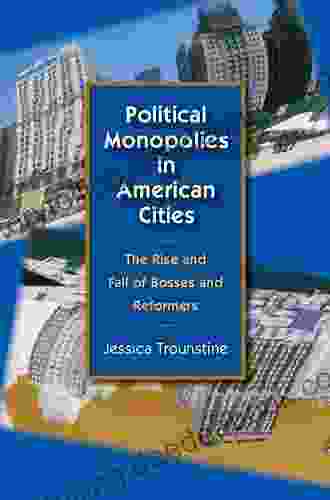Screening Neoliberalism: Transforming Mexican Cinema from 1988 to 2024

Neoliberalism, a political and economic ideology that emphasizes free markets, privatization, and deregulation, has had a profound impact on Mexican cinema since its in the late 1980s. The implementation of neoliberal policies has led to significant changes in the production, distribution, and reception of Mexican films, and has also influenced the content and aesthetics of these films.
One of the most significant changes that has occurred in the Mexican film industry under neoliberalism is the decline of state support for filmmaking. In the pre-neoliberal era, the Mexican government provided substantial financial assistance to filmmakers through the National Film Institute (IMCINE). However, with the adoption of neoliberal policies, funding for the IMCINE was大幅削减, and this has made it more difficult for independent filmmakers to produce films.
4.2 out of 5
| Language | : | English |
| File size | : | 798 KB |
| Text-to-Speech | : | Enabled |
| Screen Reader | : | Supported |
| Enhanced typesetting | : | Enabled |
| Print length | : | 304 pages |
The decline of state support for filmmaking has led to a greater reliance on private investment in the Mexican film industry. This has resulted in a shift in the types of films that are being produced. In the pre-neoliberal era, Mexican cinema was characterized by a strong commitment to social and political issues. However, with the influx of private investment, there has been a move towards more commercial films that are designed to appeal to a wider audience.
The globalization of the film industry has also had a significant impact on Mexican cinema. With the advent of new technologies, such as streaming services, it has become easier for Mexican films to reach a global audience. This has led to a greater awareness of Mexican cinema outside of Mexico, and has also helped to create new opportunities for Mexican filmmakers.
However, the globalization of the film industry has also presented some challenges for Mexican cinema. The influx of Hollywood films into the Mexican market has made it more difficult for Mexican films to compete. Additionally, the dominance of global film festivals has led to a certain degree of homogenization in Mexican cinema, as filmmakers increasingly strive to make films that will appeal to international audiences.
The changes that have occurred in the Mexican film industry under neoliberalism have also had a significant impact on the content and aesthetics of Mexican films. In the pre-neoliberal era, Mexican cinema was characterized by a strong sense of realism and a commitment to social and political issues. However, with the shift towards more commercial filmmaking, there has been a move towards more escapist and fantasy-oriented films.
Additionally, the globalization of the film industry has led to a greater influence of Hollywood aesthetics on Mexican cinema. This is particularly evident in the increasing use of special effects and CGI in Mexican films. While these changes have allowed Mexican filmmakers to create more visually appealing films, they have also led to a certain degree of homogenization in Mexican cinema.
The impact of neoliberalism on Mexican cinema has been complex and multifaceted. While neoliberalism has led to some positive changes, such as the globalization of the film industry and the increased availability of Mexican films to a global audience, it has also had some negative consequences, such as the decline of state support for filmmaking and the shift towards more commercial filmmaking.
As Mexico continues to grapple with the challenges of neoliberalism, it is important to consider the impact that these policies are having on the film industry. The future of Mexican cinema will depend on the ability of filmmakers to adapt to the changing political and economic landscape, while still maintaining their commitment to social and political issues.
4.2 out of 5
| Language | : | English |
| File size | : | 798 KB |
| Text-to-Speech | : | Enabled |
| Screen Reader | : | Supported |
| Enhanced typesetting | : | Enabled |
| Print length | : | 304 pages |
Do you want to contribute by writing guest posts on this blog?
Please contact us and send us a resume of previous articles that you have written.
 Novel
Novel Page
Page Story
Story Reader
Reader Library
Library Paragraph
Paragraph Bookmark
Bookmark Glossary
Glossary Bibliography
Bibliography Preface
Preface Annotation
Annotation Manuscript
Manuscript Scroll
Scroll Codex
Codex Library card
Library card Narrative
Narrative Biography
Biography Autobiography
Autobiography Memoir
Memoir Reference
Reference Dictionary
Dictionary Narrator
Narrator Card Catalog
Card Catalog Borrowing
Borrowing Stacks
Stacks Study
Study Research
Research Lending
Lending Academic
Academic Journals
Journals Reading Room
Reading Room Rare Books
Rare Books Special Collections
Special Collections Literacy
Literacy Study Group
Study Group Thesis
Thesis Dissertation
Dissertation Awards
Awards Book Club
Book Club Theory
Theory Merete Kruuse
Merete Kruuse Linda Calver
Linda Calver John Butt
John Butt 2008th Edition Kindle Edition
2008th Edition Kindle Edition Erika J Kendrick
Erika J Kendrick Robin Totton
Robin Totton Gordon Grob
Gordon Grob Roger W Schmenner
Roger W Schmenner Shah Asad Rizvi
Shah Asad Rizvi Kevin Miller
Kevin Miller Priscilla Lee
Priscilla Lee Jennifer S Light
Jennifer S Light Vijay Seshadri
Vijay Seshadri Laurel Snyder
Laurel Snyder Catalin Gruia
Catalin Gruia Robert Carpenter
Robert Carpenter Sally Nash
Sally Nash Jonathon L Earle
Jonathon L Earle Vakhtang Gogokhia
Vakhtang Gogokhia Markus Jakobsson
Markus Jakobsson
Light bulbAdvertise smarter! Our strategic ad space ensures maximum exposure. Reserve your spot today!
 Walter SimmonsFollow ·2.5k
Walter SimmonsFollow ·2.5k Samuel Taylor ColeridgeFollow ·13.9k
Samuel Taylor ColeridgeFollow ·13.9k Cole PowellFollow ·4k
Cole PowellFollow ·4k Ike BellFollow ·13.5k
Ike BellFollow ·13.5k Vladimir NabokovFollow ·19.9k
Vladimir NabokovFollow ·19.9k George R.R. MartinFollow ·6.9k
George R.R. MartinFollow ·6.9k Eric HayesFollow ·18k
Eric HayesFollow ·18k Marcel ProustFollow ·16.5k
Marcel ProustFollow ·16.5k

 Howard Blair
Howard BlairClassical Music Themes for Easy Mandolin, Volume One
Classical Music Themes for Easy Mandolin,...

 Paulo Coelho
Paulo CoelhoThe Heretic Tomb: Unraveling the Mysteries of a Lost...
Synopsis In Simon Rose's captivating debut...

 Rodney Parker
Rodney ParkerThe Passionate Friends Annotated Wells: A Deeper...
Unveiling the...

 Ed Cooper
Ed CooperDelicious Stories of Love, Laughs, Lies, and Limoncello...
In the heart of...

 Elmer Powell
Elmer PowellHal Leonard Piano For Kids Songbook: Unleashing the...
Music holds immense...
4.2 out of 5
| Language | : | English |
| File size | : | 798 KB |
| Text-to-Speech | : | Enabled |
| Screen Reader | : | Supported |
| Enhanced typesetting | : | Enabled |
| Print length | : | 304 pages |














